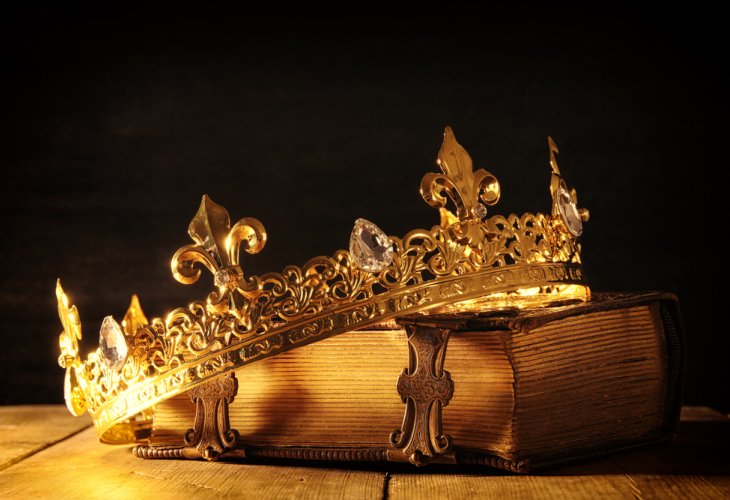Torah Personalities
King Chizkiyahu: The Righteous Reformer Who Stood Against an Empire
A king of faith, Torah, and miracles, Chizkiyahu led a spiritual revival and saw Divine salvation against all odds
 (Photo: shutterstock)
(Photo: shutterstock)A King of Righteousness and Renewal
King Chizkiyahu (Hezekiah) ruled the Kingdom of Yehudah (Judah) and is remembered in both the Written and Oral Torah for his deep righteousness and bold religious reforms. He assumed the throne at age 25 and reigned for 29 years in Jerusalem.
One of his first acts as king was to restore the service in the Temple, which had been halted during the reign of his father, King Achaz. Chizkiyahu destroyed the bamot (private altars) and eradicated idol worship throughout the land, including the worship of Baal and Asherah.
His era marked a major transition in Jewish history. During his reign, Shomron (Samaria) fell, the Kingdom of Yisrael (Israel) was lost, and the Ten Tribes were exiled.
A Nation of Torah Scholars
The Sages describe Chizkiyahu’s generation as one in which the entire population was steeped in Torah. A striking midrash recounts that he placed a sword at the entrance to the beit midrash (study hall), declaring that anyone who did not study Torah would be punished. As a result, there was not a single child or adult in the kingdom who was not well-versed in the laws of ritual purity.
The Talmud (Sanhedrin 94b) connects this spiritual renaissance with the miraculous defeat of the Assyrian army:
“The yoke of Sancheiriv was broken because of the oil of Chizkiyahu that burned in synagogues and study halls.”
Midrashic sources describe how the entire nation, “from Dan to Be’er Sheva,” was filled with Torah knowledge, and not a single person was an ignoramus.
A Fatal Illness and a Defiant Prayer
The Talmud (Berachot 10a) describes a grave illness that struck Chizkiyahu. The prophet Yeshayahu (Isaiah) came to him with a harsh decree: “You will die and not live.” This, he explained, was because Chizkiyahu had refused to marry and have children, violating the biblical commandment to be fruitful and multiply.
Chizkiyahu responded that he foresaw through Divine inspiration that his children would be wicked. Yeshayahu replied:
“Why involve yourself in God’s hidden matters? Do what you are commanded, and let God do as He wills.”
Chizkiyahu accepted the rebuke, married Yeshayahu’s daughter in the hope that their joint merit would influence their children, and indeed recovered. Tragically, Chizkiyahu's son, Menashe, would later become a profoundly wicked king.
The Assyrian Threat and a Miraculous Victory
In the 14th year of Chizkiyahu’s reign, Sancheiriv (Sennacherib), king of Assyria, invaded Yehudah and captured several cities. Chizkiyahu tried to appease him with a heavy tribute, 300 talents of silver and 30 of gold, even stripping gold from the doors of the Temple. But it wasn’t enough.
Sancheiriv sent Ravshakeh with a massive army to Jerusalem. Ravshakeh addressed the people in fluent Hebrew, urging them to surrender and mocking Chizkiyahu’s reliance on God. In response, Chizkiyahu turned to prayer and sought Yeshayahu’s guidance. The prophet reassured him: Sancheiriv would return to his land and die there.
When Sancheiriv’s forces camped just outside Jerusalem, he arrogantly delayed his attack until morning. That night—on the eve of Pesach—a miracle occurred. An angel of God struck down 185,000 Assyrian soldiers. Sancheiriv fled in disgrace and was later assassinated by his own sons.
This miracle is referenced in the Pesach Haggadah in the poem “Az Rov Nissim,” with the line:
“He who dared to wave a hand, his corpse lay spoiled overnight.”
The Prayer for Healing: A Powerful Segulah
The prayer recited by Chizkiyahu during his illness, recorded in Yeshayahu 38:9–20, is considered a segulah (spiritual remedy) for healing. According to the Likutei Tzvi, anyone (whether sick or healthy) who says this prayer with tears during a time of crisis may be spared from harsh decrees.
Ta’amei HaMinhagim adds that even if one cannot cry genuinely, saying the prayer in a crying voice is valuable. If the ill person cannot recite it, loved ones may say it on their behalf. (See the full text of the prayer in Yeshayahu 38:9–20.)
Spiritual Lessons from Chizkiyahu’s Life
Chizkiyahu’s story offers powerful moral and halachic (Jewish legal) lessons, highlighted by Chazal and in the Zohar:
Facing the Wall in Prayer: Just like Chizkiyahu turned toward the wall to pray (Yeshayahu 38:2), the Talmud derives that one should pray close to a wall.
Never Give Up on Mercy: When told he would die, Chizkiyahu replied: “Even if a sharp sword is at a person’s neck, he should not withhold himself from mercy.”
Healing and Teshuvah (Repentance): The Zohar teaches that before Chizkiyahu, illness almost always led to death. His healing became a turning point, proving that repentance can change even the harshest decree.
The Importance of Gratitude: The Talmud teaches that God wanted to make Chizkiyahu the Mashiach and Sancheiriv the embodiment of Gog and Magog (the final war that precedes the arrival of Mashiach). But Chizkiyahu failed to sing praise after his miraculous salvation. In light of this missed opportunity, we learn about the importance of expressing gratitude to God.
A Spark of Redemption in Every Generation: According to Yalkut Reuveni, Chizkiyahu contained a spark of Mashiach’s soul. In every generation, a similar spark exists, ready to redeem us if the people are worthy.
King Chizkiyahu’s reign was marked by spiritual renewal, national resilience, and Divine deliverance. His legacy continues to inspire us, even centuries later.

